how a baby macaw parrots grows.
A baby macaw parrot goes through several stages of growth and development as it matures into an adult bird. Here's a general overview of the growth process:
Hatching: The baby macaw emerges from its egg, usually after an incubation period of around 24 to 28 days. At this stage, it is blind, naked, and completely dependent on its parents for warmth, protection, and food.
Nestling Stage: During the first few weeks after hatching, the baby macaw remains in the nest. Its primary activities are eating and growing. The parents regurgitate partially digested food for the chick to consume. This early diet mainly consists of crop milk, a specialized secretion produced by the parents.
Feather Development: As the macaw chick grows, it starts developing feathers. Initially, the feathers are just small shafts, but they gradually unfold and develop their colorful plumage. The process of feather development, called feather molting, continues over several months.
Wing Exercises: As the baby macaw grows older, it becomes more active and begins exercising its wings. It starts flapping them to strengthen the muscles and gain coordination. This is an essential step in preparing for flight.
Weaning: Around 12 to 14 weeks of age, the baby macaw starts the weaning process, during which it transitions from a primarily liquid diet to solid food. The parents introduce solid foods, such as fruits, vegetables, seeds, and nuts, to the chick's diet. Initially, the chick may show resistance, but over time it learns to consume solid foods independently.
Fledging: Fledging is the stage when the baby macaw leaves the nest and attempts its first flight. It usually occurs around 12 to 16 weeks of age. The young macaw may make short flights within a controlled area while still relying on its parents for support and guidance.
Juvenile Stage: After fledging, the macaw enters the juvenile stage, which lasts for several years. During this period, the bird continues to grow, develop its flight skills, and learn important social behaviors. It explores its environment, interacts with other birds, and gradually becomes more independent.
Sexual Maturity: Macaws reach sexual maturity at different ages depending on the species. It typically takes several years for a macaw to reach sexual maturity, which can range from 3 to 7 years or even longer.
Throughout this growth process, it's crucial for the baby macaw to receive proper nutrition, care, and socialization from its parents or human caretakers. Providing a healthy and stimulating environment helps ensure the bird's overall well-being and development.
-
 2:39
2:39
sarah2020
3 years agoBaby Parrot Growing Up
31 -
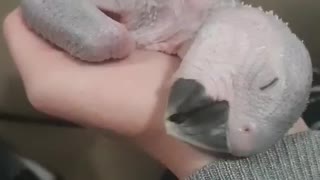 0:08
0:08
Pablothemacaw
5 years agoBaby macaw
2 -
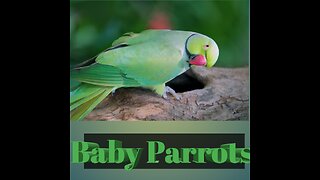 0:17
0:17
SunRise Oceans
1 year ago05 Baby Parrots
161 -
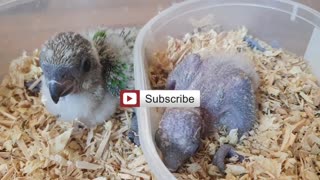 7:20
7:20
deogabs
1 year agoHow To Properly Feed Baby Parrots-Senegal Parrot
14 -
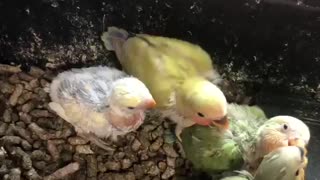 1:13
1:13
sajjad3801
9 months agobabies parrots eating food
961 -
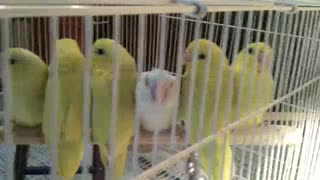 5:19
5:19
MyLifeWithBirds
3 years agoProgression of Baby Parrotlets
117 -
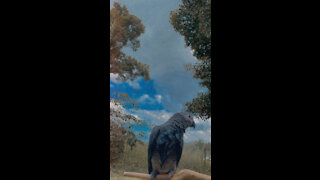 12:41
12:41
thestormxbrodie
3 years agoAfrican Grey parrot growth stages
1801 -
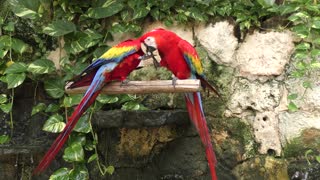 0:46
0:46
SvetlanaAna
3 years agoScarlet Macaw, the red parrots playing in a garden
511 -
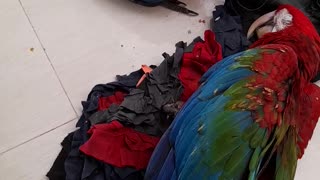 0:11
0:11
amilamadushanka75
1 year agoPet Birds - Macaw
4 -
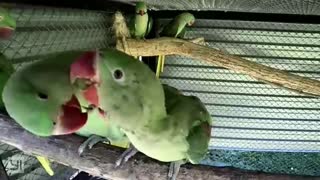 2:08
2:08
Parrots Brothers
3 years agoBaby parrots are playing
45